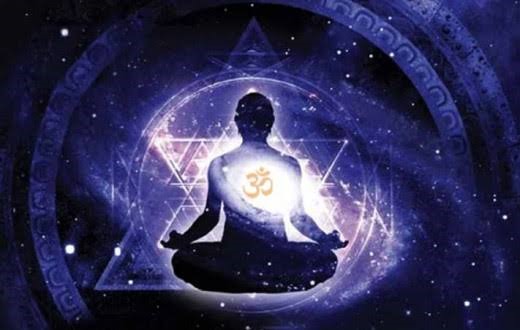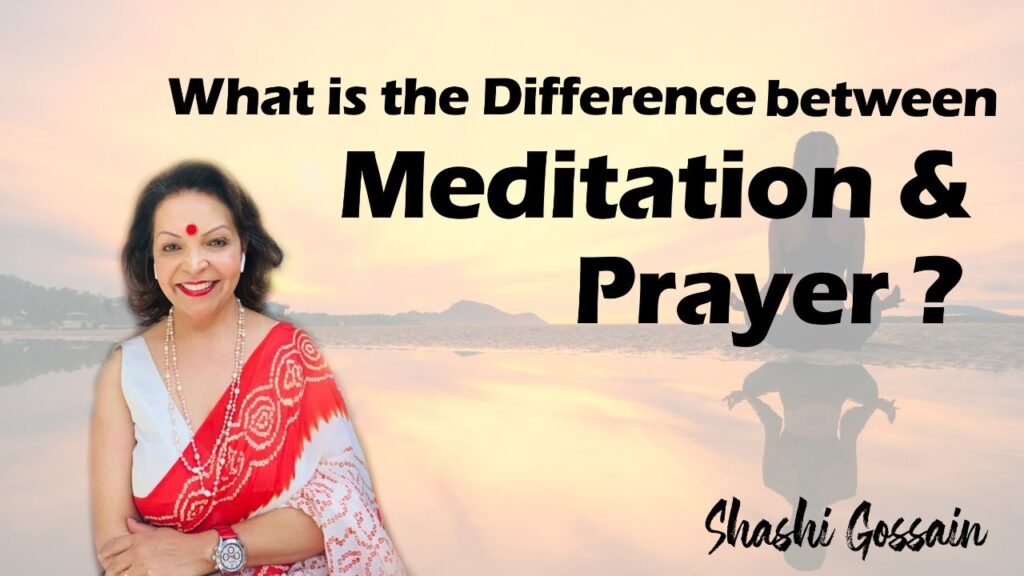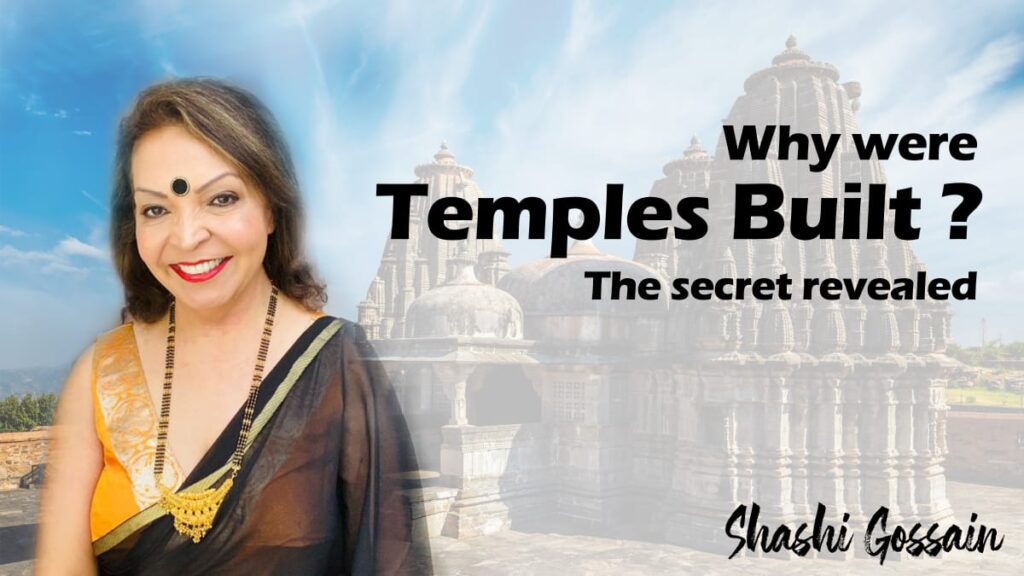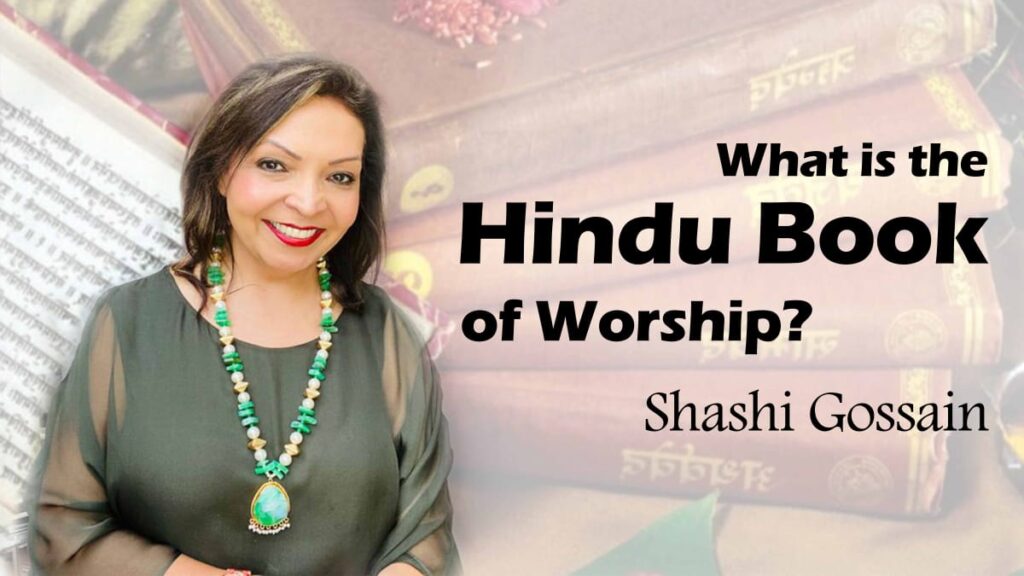I am often asked about the difference between prayer and meditation. The distinction is not always obvious, but there are subtle & distinct differences. The true difference between meditation and prayer is not external, but internal.

What is the difference between prayer and meditation?
The key difference between prayer and meditation is:
Prayer: We join our hands, bow our heads & ask God for something.

Meditation: We keep our head & body upright & we dig deeper into our self & seek the divinity within us.

What is meditation and how it works?
Meditation is an ancient Hindu tradition, to create a sense of calm and inner harmony.
This is often achieved by-
- concentrating on the breath
- a repeated phrase (mantra), or
- an object (e.g., deity)
Meditation is commonly described as a
- focusing of one’s mind or making the mind one-pointed
- withdrawing inwards from the outer world of the senses
- growing your concentration and focus muscles
Meditation is like a muscle- the more you do it, the better you will become at staying focused without your mind wandering. We are designed to be focused beings. Doing one thing at a time, and doing it well.
When we do not do this, our life becomes chaotic and our stress levels rise.
In today’s life, we are constantly checking social media, listening to things, talking to people, and multitasking. This is a disaster as far as our brain and connection with God are concerned.
What are the 4 stages of meditation?
Meditation involves removing judgment from one’s thoughts and ideas,
- In the beginning, one simply notices the activity of the mind, which is always thinking or oscillating between past events and worries about the future.
- During meditation, thoughts are observed without trying to judge or control them.
- As meditation deepens, one often feels detached from thoughts and sensory experiences, as if they can just flow by like a river without interference.
- Advanced meditation becomes effortless; one is naturally pulled inwards towards a great inner silence.
What Prayer means?
Prayer, a separate sense of self that longs for help from a higher being (God, the universe, one’s divine nature), to change the world or a situation as they would like it to be. We want a relief from a sense of helplessness.
- involves distinguishing between the positive and the negative
- pleading for what is good or virtuous while rejecting what is bad or evil.
- use one’s thoughts & will to compassionately influence the outer world.
- uplifts the sense of separate self and brings the person into a feeling of unity.
When we pray wholeheartedly, beseeching God/higher power for help, our prayer itself brings us to a place of divine connection.
After praying, people often report feeling more connected, calmer, and closer to God.
What is Selfless Prayer?
Hinduism is based on faith in the form of one Supreme God through the worship of deities.
We are given the confidence that everything that happens or will happen to us is guided by God for our spiritual growth.
For spiritual growth, we learn to pray selflessly. The more enlightened being will understand that it is unnecessary to pray for anything for oneself. This leads to selfless prayer.
For instance, a not very developed person may pray to God to be relieved from their own suffering, while a highly developed person would see their own suffering as a gift or test of God to make them a stronger person.
They would most likely send out prayers for God to relieve others from their suffering.
Whichever you choose, starting your day with a short daily practice of prayer or meditation will change your outlook on life in surprising and unpredictable ways.
Even if your prayer is a simple expression of gratitude or your meditation is a quick ten minutes of following the breath,
consistent practice will produce tangible results.
People who pray totally selflessly are most likely to be the most advanced meditatively as well.
Their meditation would be empty of limited selfish desire. They would be more compassionate.
We spend most of our waking hours subconsciously praying to fulfill our desires.
The spiritually advanced will have overcome this suffering-causing habit & become more ready to listen to the divinity within us. This is the eternal message in the Bhagavad Gita.



